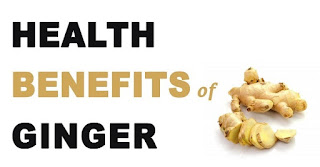Overview
Ginger is one of the most powerful spices worldwide. Ginger is amazingly the foremost wide used dietary flavoring within the world these days. It’s really a part of the family that features turmeric and cardamom, which can justify why the health advantages of ginger are extraordinary. Ginger comes from rhizomes, a rhizome is an underground stem that grows horizontally.Ginger is originated from the Indian subcontinent to Southern Asia, where its cultivation remains among the worlds largest producers, which includes India, China, and southern Asian countries. Its botanical name is Zingiber officinale. From over 4,700 years Chinese and Indians use ginger tonics to treat ailments. In Asian countries, its ginger powder is used in traditional dishes and soft drinks such as coffee and tea.
Types of Ginger
- Alpinia
- Costus
- Curcuma
- Globba
- Zingiber
Nutritional Value
Ginger is a rich source of vitamin C, vitamin E, sodium, potassium, and dietary fiber.Serving Size: 100 grams
| Energy - 80 kcal | Carbohydrates - 17.77 g |
| Fat - 0.75 g | Protein - 1.82 g |
| Dietary Fiber - 2.0 g | Folates - 11 g |
| Vitamin C - 5 g | Vitamin E - 0.26 mg |
| Vitamin K - 0.1 g | Sodium - 13 mg |
| Potassium - 415 mg | Vitamin - 0 g |
Also See
Health Benefits of Ginger
Good for Hair Growth
Drinking ginger juice frequently will offer you long and powerful hair. It should sound repulsive, due to their sturdy smell, however, mix onion and ginger juice and applying it to your scalp will help to grow your hair thick and powerful. Ensure you apply it to your scalp properly and leave it for 15 minutes to half-an-hour. Wash out and dry. Ginger juice conditions your hair and additionally increase the blood flow to the hair follicles. Moreover, the antiseptic quality of ginger will prevent you from dandruff.You’ll even combine ginger juice with olive oil if you’ve got dry hair. Another very hip hair mask that you just will create to push hair growth is by mix four teaspoons of coconut oil, three crushed garlic cloves, half dozen teaspoons of coconut milk, two teaspoons of honey, and one teaspoon of ginger juice. Apply to your scalp and rinse after half-an-hour. The Sulphur compounds in garlic alongside the ginger juice aid hair growth.
Ginger Removes Bad Breath
The Vitamin C in the ginger juice helps in killing the bacteria in the mouth that causes dangerous breath. Combine a spoon of ginger juice with some lime in warm water and gargle for a couple of minutes.Prevent Alzheimer’s Disease
Recent researchers recommend that Alzheimer’s unwellness is often associate inheritable and run as a typical illness in several families. Just in case you belong to such a family and wish to guard against Alzheimer’s illness, then you must include ginger in your daily diet. Researchers more state that ginger slows down the process by that brain loses it cells, which may be the precursor to Alzheimer’s. Ginger helps to guard and preserve the brain cells, thereby keeping you active, coherent and alert for prolonged periods.Ginger May Relieves Congestion and Cold
Ginger juice has wonderful antibacterial drug properties. Consuming ginger juice with dried pepper will helps to eliminate secretion and congestion within the lungs. To cure a cold, combine equal quantities of ginger juice and honey and drink it warm at least few times during a day. Drinking plain ginger juice also can help in clearing a raw throat.Good for Digestion
Ginger juice contains certain volatile oils which will help to awaken your taste buds and acquire the juices flowing. It purifies the mouth and stimulates the assembly of saliva which aids the digestion method. Having a mixture of ginger juice, salt and lime before or once a meal make it easier to digest your food.Also See
Interesting Facts About Ginger
- Dried and Crystalized Ginger are used in sweets and confectionary.
- Ginger may be cultivated all year. But the most effective time to plant them is at the end winter and early spring.
- It can grow up to 4 feet tall.
- The major producers of ginger today are China, Brazil, and Nigeria.
- The ground ginger root contains a higher nutritionary value than raw ginger root.
- Ginger processes a therapeutic action referred to as a sialagogue that is liable for stimulating saliva production.
- It is mentioned in a Koran, Bible, and Talmud.
- In the thirteenth and fourteenth centuries, a pound of ginger was similar to the value of a sheep.
- The root of ginger is more pungent so it is used in spices.
- The top 5 countries that produce the foremost ginger is India (34.6%), China (19.1%), Nepal (10.6%), Nigeria (7.8%), and Thailand (7.5%).
Risks and Precautions of Ginger
The Ginger root has been given a class one safety rating by the American Herbal Products Association (AHPS). This rating indicates that it’s a secure herb with a good dosage range. Side effects related to ginger are rare, however, if taken in excessive doses, the herb could cause gentle heartburn.Breast Feeding - There is not enough reliable info regarding the safety of taking ginger if you are breastfeeding. Be on the safe side and avoid use.
Diabetes - Ginger would possibly increase your insulin levels and/or lower your blood glucose. As a result, your diabetes medications might need to adjust by your healthcare provider.


2 comments
Write commentsNice site on telling health information keep on posting
ReplyVery nice info...
ReplyThanks for giving such valuable information.
EmoticonEmoticon